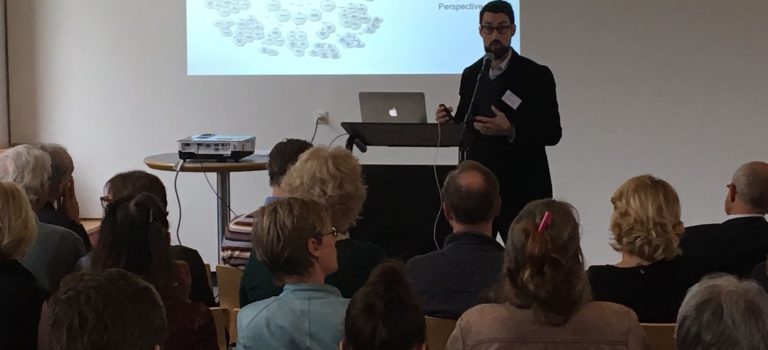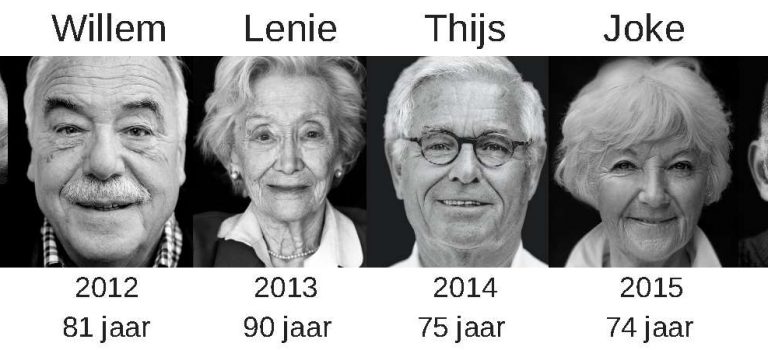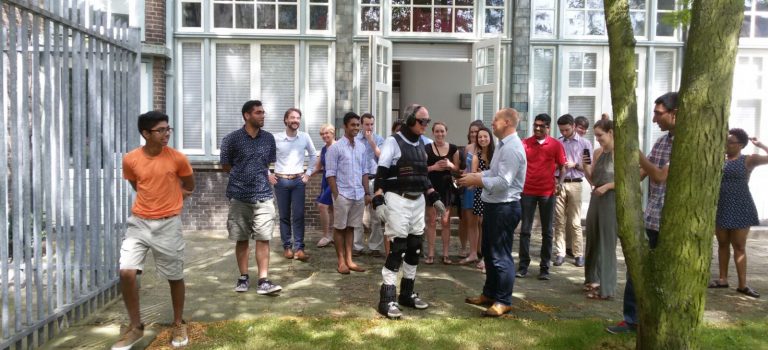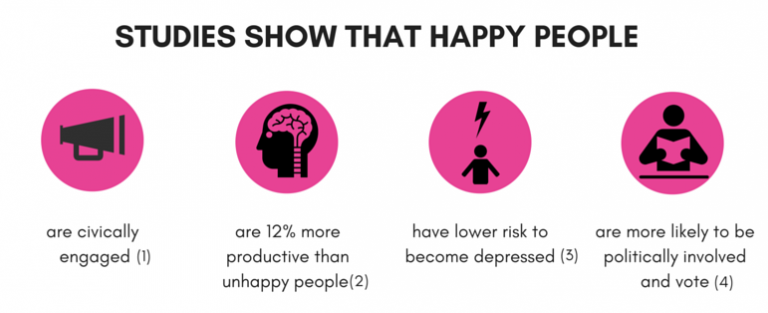On Thursday 1 December, the online course Healthy Ageing in 6 Steps was launched on learning platform edX.org. This massive online open course (MOOC), developed by Leyden Academy in cooperation with EIT Health and TU Delft, immediately welcomed many visitors and from the start many participants engaged in lively discussions on the discussion boards of the course. At the end of the second week of the course, we now have 2,748 participants enrolled from 128 different countries.
Youngest participant 16, oldest 85 years old
The participants come from all over the world: most students are from the US (21 percent), while the Netherlands (8 percent) and India (6 percent) are also well represented. The median age of the students in 39 years, with the youngest student being 16 years and the most senior student 85 years old. That the course has a very mixed crowd, is also reflected in the education levels: about 15 percent has finished high school, almost half of the participants have completed a higher education. Approximately 60 percent of the course participants are male, 40 percent are female.
World map of fridges
On the discussion boards, participants collectively share their ideas on the content of the course and their personal experiences with (un-)healthy ageing. They respect each other’s contributions and motivate each other to think about a healthier lifestyle. Also, participants use the platform to get in touch with each other and engage in interesting discussions. Physicians, civil servants, law students, retirees, athletes, ICT-professionals, occupational therapists and many others share their views on how to age in a more healthy way. Moreover, the students take the exercises and assignments very seriously. For example, many people uploaded photos of their fridges on the interactive world map.
You can still join the course!
Every week, new course content is published, but it is certainly not too late to enroll in the course. The course lasts six weeks and even afterwards, it is still possible to enroll and complete the course at your own pace. There is also a possibility to obtain an edX certicificate of the course!
Below, please find some interesting comments from the MOOC so far:
“Very good analogy to the car industry and prevention. It will take a real change in mindset to move us from the mindset of doctors and pills. I love the challenge!”
“I am heavier than I have ever been and being 61 is not an excuse. I am moving to more cooking at home, and not cooking meat at home. I walk about 10,000 steps a day.”
“The BMI level of old Ghanaians is impressive. Here in China people keep a very high index even at a very young age. And for mid-30s the working people I think are very critical in this area.”
“I’m 68 now. I’m convinced that sitting long hours in a chair is one of the biggest threats to healthy life. (…) Too much chair has made my spine sick.”
“I migrated to the USA from Mexico 25 years ago. The idea of mismatch makes sense to me. As the years progress in my new homeland, I have gained weight. I have realized that not only becoming a mature woman affects my metabolism, but also I do not eat the same diet as in my Mexican life. USA has so much processed food and restaurants use an insane amount of salt in their cooking. I agree that also physical activity adds to keep those pounds down. I do not walk as much as I used to do in my younger years. It is all related.”
“As the old saying had it: an ounce of prevention is worth a pound of cure.”
“It is somewhat difficult for old men (I cannot speak for women), to make new connections once the old friends evaporate away. The reason I take these MOOCs is to be able to communicate. Incidentally I completed about 160.”
“Before I book my ticket to Ghana, how do Ghanaians fare in terms of incidence of the different types of dementia?”









